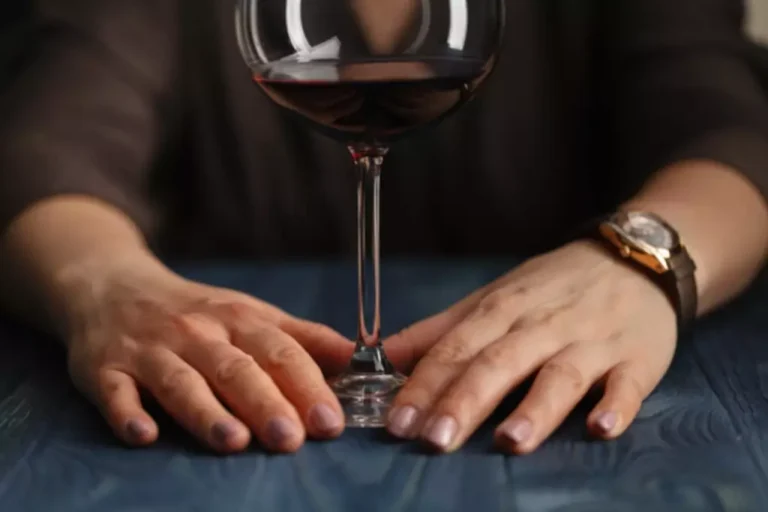
And it doesn’t take long to notice the does alcohol help you sleep difference — 80% of RISE users get more sleep within five days. Sleep debt is compared to your sleep need, which is the genetically determined amount of sleep you need. Eric Suni has over a decade of experience as a science writer and was previously an information specialist for the National Cancer Institute.
- The compensation we receive from advertisers does not influence the recommendations or advice our editorial team provides in our articles or otherwise impact any of the editorial content on Forbes Health.
- The homeostatic drive prompts sleep by boosting levels of adenosine when we’ve been awake for too long.
- People in alcohol recovery take a long time to fall asleep, have problems sleeping through the night, and feel that their sleep is not restorative.
- Like all things alcohol-related, it’s about moderation and knowing your limits.
- But if you are more than a “one and done” drinker, or are worried that alcohol is affecting your well-being and health, it’s worth looking at how it is affecting you.
- While your internal clock regulates the kidney’s release of electrolytes and works to filter fluids, alcohol inhibits these processes.
Oral Appliances for Sleep Apnea
- “It may also be the tryptophan in it or other proteins that help people fall asleep,” says Hunnes.
- ‘You are less likely to wake up in the early hours and your sleep stages will be closer to normal the less you have drunk.’ Find it hard to stagger your hard drinks?
- Alcohol causes the muscles in the mouth and throat to relax, which makes these tissues susceptible to fluttering and making noise as a person breathes in and out.
- People with insomnia have an increased risk of developing alcohol use disorder, potentially because many individuals turn to alcohol as a sleep aid.
- These fluctuations play a vital role in the sleep-wake cycle, and when they are weakened—or absent—a person may feel alert when they want to sleep and sleepy when they want to be awake.
Researchers have found that insomnia is arisk factor for alcohol abuse. When a person has sleep apnea, they have interrupted breathing during the night. The condition is linked to fatigue as well as serious cardiovascular conditions like heart attack and stroke.
Can Alcohol Cause Sleep Apnea?
There are also some relapse-prevention medications that can help promote sleep. Sleep problems are often viewed as one of the last things to improve among people in alcohol recovery. That doesn’t mean there isn’t a link between alcohol and long-term sleep issues worth keeping an eye on though, Dr Ní Raghallaigh warns. Your daily habits and environment can significantly impact the quality of your sleep.
Tips for sleeping after a night out
After drinking alcohol, a person with OSA is prone to having more and longer-lasting breathing disruptions. Multiple studies have found that alcohol use increases a person’s apnea-hypopnea index (AHI), which measures how many times per hour a sleeper’s breathing pauses or becomes restricted. Drinking alcohol has also been tied to reduced blood oxygen levels in people with OSA. If you find that you persistently snore whether you’ve been drinking or not, it could be due to a sleep disorder, such as sleep apnea. When a person is diagnosed with sleep apnea, it means that they have short and frequent breathing cessations during the night. These cessations force the body to partially rouse itself over and over again in order to restore proper breathing, preventing sufferers from getting the deep, restful sleep they need.


If you experience consistent snoring and any one of the symptoms listed above, it may be time to talk to someone about your sleep issues. Schedule a free consultation with Dr. Rodgers and the team at Sleep Better Georgia today so we can get to the root of your sleep problems and help find the solution that’s right for you. In two separate studies, up to 28% of people said they use alcohol to help them fall asleep. Alcohol potentially causes a shorter overall sleep time and disrupted sleep, which lead to next-day fatigue and sleepiness. The more alcohol you drink, the greater the negative effects on your sleep.
Moderate alcohol consumption and sleep disruptions

You may have also developed a tolerance to the sedative effects of alcohol and other factors, like poor sleep hygiene, could be keeping you awake. Experts often suggest that people with sleep apnea avoid drinking alcohol. If abstaining from drinking completely is not realistic, it may be beneficial to reduce alcohol consumption and try to stop drinking at least a few hours before bedtime.
- Perhaps surprisingly, it found that alcohol affected the sleep of younger people more than it did older adults.
- He cares for patients through his private practice in Houston, where he provides evaluations, medication management, and therapy for psychiatric and sleep medicine conditions.
- It is also important to seek professional help if a person shows signs of alcohol abuse.
- Research indicates that it may take as long as one to two years for sleep to return to normal in abstinent alcoholics and that for some it may never return to normal.
How Does Alcohol Withdrawal Affect Sleep?

Also, research shows that people can develop a tolerance to this boozy method within three nights, causing you to need a larger amount of alcohol to https://ecosoberhouse.com/ get the same effect. First, alcohol affects everyone differently because of a slew of factors, like age, biological sex, and body composition, just to name a few. Sunnyside uses a psychology-based approach to help you drink more mindfully, no matter what your goal is.
